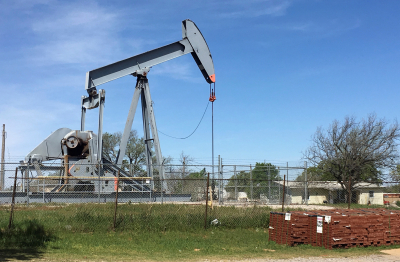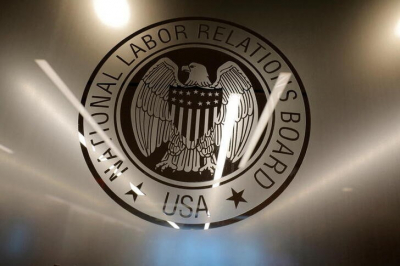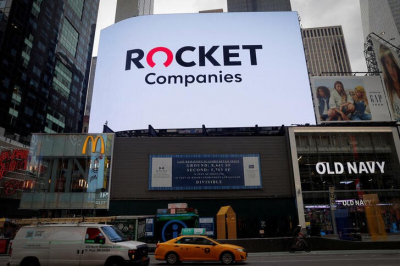
"Kill us or send us home": Amazon workers in Saudi Arabia say they were exploited by labor supply companies and recruitment agencies
More than 50 current and former employees have claimed that they were misled by labor supply companies in Saudi Arabia and recruitment agencies in Nepal.
This story was published in collaboration with the International Consortium of Investigative Journalists, Arab Reporters for Investigative Journalism, and The Guardian.
Momtazj Mansur arrived in Saudi Arabia in September 2021, excited about the opportunity to work at one of the world's largest companies - Amazon. He was promised well-paying work and planned to use the money to help his family return to Nepal.
In less than a year, he said he was living in a crowded room with seven other men, bunk beds infested with bedbugs. The water was often salty and undrinkable. His hopes were shattered, and he was drowning in debt.
Momtazj Mansur is one of over 50 current and former workers who claimed that they were misled and exploited by labor supply companies providing workers to Amazon in Saudi Arabia, as well as their network of recruiting agencies in Nepal.
All the workers said they had to pay recruiters fees to secure jobs, ranging from $830 to $2,040, even though such high fees are considered illegal by the Nepalese government. Many workers had to take out high-interest loans to pay these fees. They also all claimed that recruiters deceived them into working for labor supply companies rather than directly for Amazon.
Workers were interviewed as part of an international reporting collaboration with NBC News, the International Consortium of Investigative Journalists, Arab Reporters for Investigative Journalism, and The Guardian.
Around a dozen workers, like Mansur, agreed to go on the record, while others, fearing that speaking out would harm their chances of finding other work, were interviewed on the condition of anonymity. To corroborate their accounts, journalists reviewed photographs, emails, receipts, messages, and other documentation obtained during their time working for Amazon.
After reviewing the findings, Amazon told NBC News that it conducted its own investigation and found labor violations. The company pledged to take corrective actions, including compensating workers who paid fees to labor supply companies.
"We are deeply concerned that with some of our contract workers in the Kingdom of Saudi Arabia... they were not treated in line with the standards we have set, or with the dignity and respect they deserve," said John Felton, Senior Vice President of Amazon's Global Delivery Services, in a written statement.
"We appreciate their willingness to come forward and share their experiences," Felton added. "The process of auditing our supply chain and our own investigation uncovered violations of our standards."
Specifically, among the violations the company identified were hiring fees and poor accommodations. However, Amazon declined to provide more detailed information or discuss other labor violations.
A key player for Amazon is a labor supply company that hires workers from other countries, based in Saudi Arabia, called Abdullah Fahad Al-Mutairi Co. Amazon is among several major corporations that have contracts with Al-Mutairi, which positions itself as a "leading provider of recruitment and HR solutions" in the Kingdom of Saudi Arabia. Forty-nine out of 54 surveyed workers were hired through Al-Mutairi.
Amazon stated that it is considering the "suspension of business activities" with the company "once these allegations became known." Instead, they opted to work with Al-Mutairi to make "significant changes to their operations."
Al-Mutairi did not respond to multiple requests for comment.
To find the workforce, Al-Mutairi worked with recruitment companies in Nepal and other countries to attract workers.
Momtazj Mansur from Nepal was one of them.
When he arrived in Saudi Arabia, he worked at a massive two-story Amazon warehouse called RUH 6 in the capital city of Riyadh. At night, he worked as a "picker," shuttling back and forth through the aisles, grabbing iPhones, packs of Red Bull, and other goods ordered by Amazon customers throughout the Arabian Peninsula. He recalled Amazon managers berating him for being slow, even though he exceeded the company's target of picking 70 to 80 items per hour from shelves and boxes.
Then things got even worse. According to Mansur, in May 2022, he was among a group of workers who were laid off without warning or explanation, left without jobs, salaries, and enough food.
Mansur said he begged Al-Mutairi, "If there is no more work in Amazon, let them send us back to Nepal."
"I told them, either kill us or send us home, but don't make us suffer so much."
He said the employment company told him the only way to return home was to pay the company an exit fee of over $1,300 as a penalty for leaving before the end of his two-year contract. This was a massive sum for his family, which survived on approximately $300 a month, along with rice, wheat, and lentils grown on a fifth of an acre of land they shared with relatives.
According to Mansur, the employment agency was "heartless." "How could I pay such an amount? Sell our house or my kidney?"
In the end, his family sank even deeper into debt, taking out a loan at 36% interest to cover the exit fee.





